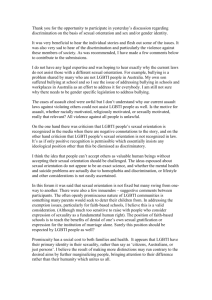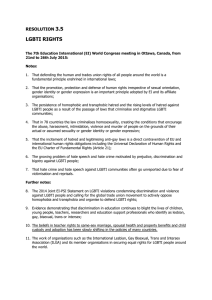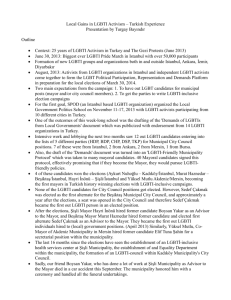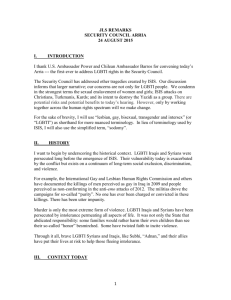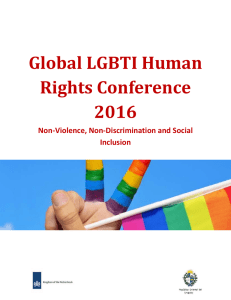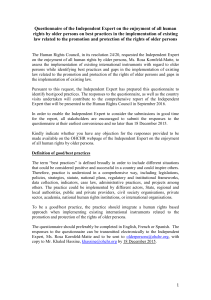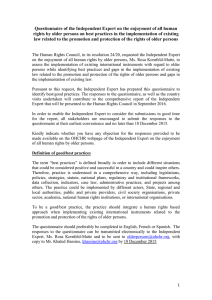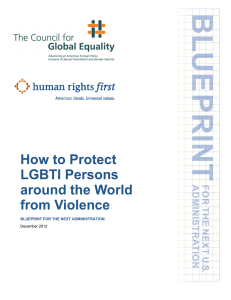RELIGION, THE LAW, AND THE CHALLENGE OF LGBTI RIGHTS
advertisement
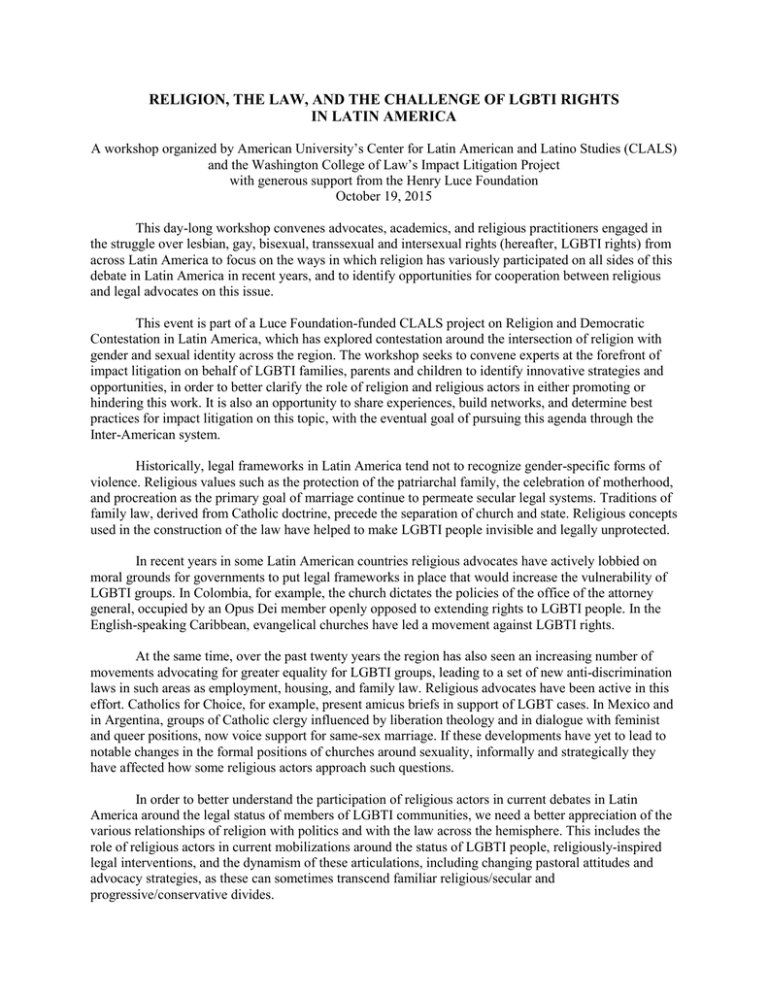
RELIGION, THE LAW, AND THE CHALLENGE OF LGBTI RIGHTS IN LATIN AMERICA A workshop organized by American University’s Center for Latin American and Latino Studies (CLALS) and the Washington College of Law’s Impact Litigation Project with generous support from the Henry Luce Foundation October 19, 2015 This day-long workshop convenes advocates, academics, and religious practitioners engaged in the struggle over lesbian, gay, bisexual, transsexual and intersexual rights (hereafter, LGBTI rights) from across Latin America to focus on the ways in which religion has variously participated on all sides of this debate in Latin America in recent years, and to identify opportunities for cooperation between religious and legal advocates on this issue. This event is part of a Luce Foundation-funded CLALS project on Religion and Democratic Contestation in Latin America, which has explored contestation around the intersection of religion with gender and sexual identity across the region. The workshop seeks to convene experts at the forefront of impact litigation on behalf of LGBTI families, parents and children to identify innovative strategies and opportunities, in order to better clarify the role of religion and religious actors in either promoting or hindering this work. It is also an opportunity to share experiences, build networks, and determine best practices for impact litigation on this topic, with the eventual goal of pursuing this agenda through the Inter-American system. Historically, legal frameworks in Latin America tend not to recognize gender-specific forms of violence. Religious values such as the protection of the patriarchal family, the celebration of motherhood, and procreation as the primary goal of marriage continue to permeate secular legal systems. Traditions of family law, derived from Catholic doctrine, precede the separation of church and state. Religious concepts used in the construction of the law have helped to make LGBTI people invisible and legally unprotected. In recent years in some Latin American countries religious advocates have actively lobbied on moral grounds for governments to put legal frameworks in place that would increase the vulnerability of LGBTI groups. In Colombia, for example, the church dictates the policies of the office of the attorney general, occupied by an Opus Dei member openly opposed to extending rights to LGBTI people. In the English-speaking Caribbean, evangelical churches have led a movement against LGBTI rights. At the same time, over the past twenty years the region has also seen an increasing number of movements advocating for greater equality for LGBTI groups, leading to a set of new anti-discrimination laws in such areas as employment, housing, and family law. Religious advocates have been active in this effort. Catholics for Choice, for example, present amicus briefs in support of LGBT cases. In Mexico and in Argentina, groups of Catholic clergy influenced by liberation theology and in dialogue with feminist and queer positions, now voice support for same-sex marriage. If these developments have yet to lead to notable changes in the formal positions of churches around sexuality, informally and strategically they have affected how some religious actors approach such questions. In order to better understand the participation of religious actors in current debates in Latin America around the legal status of members of LGBTI communities, we need a better appreciation of the various relationships of religion with politics and with the law across the hemisphere. This includes the role of religious actors in current mobilizations around the status of LGBTI people, religiously-inspired legal interventions, and the dynamism of these articulations, including changing pastoral attitudes and advocacy strategies, as these can sometimes transcend familiar religious/secular and progressive/conservative divides.
